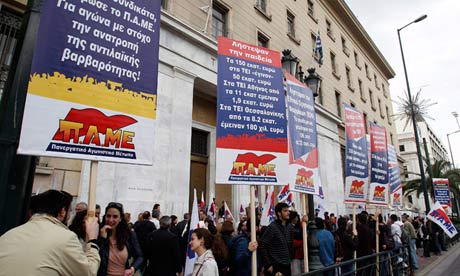Uzair M Younus in The Dawn
Despite the pronouncements coming out of Islamabad that the 9th review of the ongoing International Monetary Fund (IMF) programme is still a possibility, the fact of the matter is that successful completion of the review is a distant possibility.
This view is reinforced by the fact that the IMF’s own executive board calendar, which shows planned meetings through June 29, does not mention Pakistan. While these calendars can and do shift, recent developments would lead one to believe that if the Staff Level Agreement (SLA) has not happened yet, it is not happening in the next ten days or so.
The root cause of this failure, of course, is the hard-headedness of Pakistan’s finance minister who has refused to pay heed to common sense ever since returning to Pakistan and taking over the economy.
Whether it be the infamous Dar Peg – which angered the IMF and distorted the entire economy – or the strategy of negotiating through a staring contest, Dar has been lost at sea. As a result, Pakistan’s rock-bottom credibility in front of international creditors, key among them being the IMF, has further collapsed.
This view was summed up to me during the IMF’s 2023 spring meetings by a couple of bondholders who had gathered to listen to Pakistan’s central bank governor talk about the country’s economy. Following the discussion, these bondholders noted that the best way for Pakistan to gain its credibility and bring the IMF programme back on track was to do just one thing: get rid of Dar.
Alas, this has not happened and the prospects of the prime minister firing his family member are even slimmer than the resumption of the IMF programme.
As if keeping Dar in place was not enough, the government has also started to blame everyone but itself and its finance minister: Dar has been once again hinting at the fact that the programme is not moving forward due to geopolitics.
The truth of the matter is that everyone involved, including the United States and China, want Pakistan to remain economically stable.
But let’s assume that Dar is being truthful. This logic then leads one to question whether China and Saudi Arabia, two of Pakistan’s strategic partners, are in on the conspiracy.
After all, both these countries have made disbursement of their financial commitments to Pakistan contingent on successful completion of the 9th review.
So, if these countries were opposed to the geopolitics being played to punish Pakistan, as it has been alleged by the finance minister, then why is it that they have not yet released the additional funds they have promised to Islamabad?
This is why Islamabad’s apparent Plan B, to get additional deposits from friendly countries (like China and Saudi Arabia), also seems to be wishful thinking.
How and why these same countries would give additional funds to Pakistan when it fails to remain in the IMF programme is a question that Islamabad seems unwilling or unable to answer.
And while Dar and company continue to insist that all will be well, it is time for Pakistanis to recognise and accept that digging the economy out of this hole will be a Herculean task even in the best of circumstances. The challenge becomes that much more daunting if one were to look at the cast of characters across party lines that are potential contenders to be finance czars.
The recovery will first and foremost require rebuilding the country’s credibility, which can only be achieved by pushing through extremely painful short-term measures that help balance the books.
This would require major cuts to government spending, drastic measures to truly broaden the tax net – existing taxpayers are basically tapped out – and a structural reform agenda that is viewed positively by creditors. If this were to happen, then the recent budget put forth by the government would have to be tossed into the dustbin.
These would only be the easiest steps in a long journey.
According to data released by the IMF in September 2022, Pakistan has gross external financing needs in excess of $35 billion a year for the next three years. These needs would have to be fulfilled at a time when economic growth is down sharply, supply-chains have been distorted, investor confidence has been shattered, and the era where cheap capital was available in global markets has come to an end.
How ruling elites manage to meet these financing needs in the near future is a big question mark, and the next government will have its work cut out for it.
An alternative solution that is being discussed is debt restructuring. But this will be an even more painful process, especially for a sovereign that already has limited capacity to deal with the fallout of the IMF’s existing demands. In addition, external debt restructuring may also open the door for a conversation on domestic debt restructuring. This would stoke chaos in the country’s fragile banking sector which has binged on government debt over the last few years.
The prolonged process of debt restructuring would essentially mean that Pakistan has declared default. As a result, import of critical inputs would stall, leading to shortages of everything from fuel to imported pulses and palm oil.
As supply-chains would get distorted, prices of essential commodities would skyrocket. The value of the rupee would also collapse, leading to further inflation. Hospitals would run out of essential medicines, farmers would run out of essential inputs for the next harvest, and the entire economy would come to a grinding halt.
In short, this process would lead to near-term economic and political fallout that may be untenable for any government, let alone a coalition of status quo parties that is already deeply unpopular.
What the ruling elites in Pakistan have continuously failed to do is take a bit of a long-term view of the situation. After all, given where the politics of Pakistan is at this point in time, members of the existing coalition are likely to come back to power after general elections. This means that they will have to ultimately take charge of the situation and take measures that they are unwilling to take today.
Perhaps their rationale is that elections will provide them with a fresh mandate, but that logic is also flawed – after all, an election that leads some or all of the government’s existing members to form government in Islamabad will be seen as a continuation of the existing setup. This means that a new government will not be able to magically gain some new political capital that it can then utilise to push through painful reforms.
It appears the PML-N’s thinking is that since it will not be the senior member of a government come October, this will be someone else’s problem. There is some merit to this logic, but perhaps Pakistan’s ruling classes ought to do some deeper thinking.
After all, a country on the verge of default, where the ruling elites have run out of ideas and capacity to rescue the situation, is a problem for everyone that is part of the status quo elites.
Fitch cut its long-term rating for Argentina to "CC" from "B," a downgrade of five notches, and cut its short-term rating to "C" from "B". A rating of "C" is one step above default, AP reported.
US judge Thomas Griesa of Manhattan federal court last week ordered Argentina to set aside $1.3bn for certain investors in its bonds by December 15, even as Argentina pursues appeals.
Those investors don't want to go along with a debt restructuring that followed an Argentine default in 2002. If Argentina is forced to pay in full, other holders of debt totaling more than $11bn are expected to demand immediate payment as well.
Argentine politicians, even those opposed to President Cristina Fernandez, have nearly unanimously criticized the judge's ruling as threatening the success of the debt relief that enabled Argentina to grow again.
Ratings by agencies like Fitch are used by investors to evaluate the safety of a country's debt. Lower ratings can make it more expensive for countries to borrow money on the bond market, exacerbating their financial problems.
Argentina is in a deepening recession and is grappling with social unrest. Besides the court case, Fitch cited a "tense and polarized political climate" and public dissatisfaction with high inflation, weak infrastructure and currency.
Fitch also said that Argentina's economy has slowed sharply this year.
Of the two other major rating agencies, Standard & Poor's has a rating of "B-" for Argentina, five steps above default, and Moody's rates it "B3 negative", also five steps above default.






 72 Comments
72 Comments
